by Shivani Kapadia, PharmD, Medical Director of Global Medical Affairs, Neuropsychiatry, Otsuka Pharmaceutical Development & Commercialization, Inc (OPDC); and Sara Asif Spencer, PharmD, MS, BCGP, Medical Science Liaison, Neuropsychiatry, OPDC
This post was sponsored and developed by Otsuka Pharmaceutical Development & Commercialization, Inc.
Recognizing early signs of mental health conditions is crucial for effective intervention. Physical, behavioral, and emotional changes can often be the first indicators of an underlying issue. Common symptoms include shifts in eating and sleep patterns, increased irritability, and unexplained physical complaints. Just like physical ailments, these mental health issues may begin modestly but can escalate significantly over time. Ignoring these initial signs can lead to more severe complications. Therefore, it is vital for individuals and their loved ones to stay vigilant and proactive in monitoring these changes to ensure timely support and treatment.
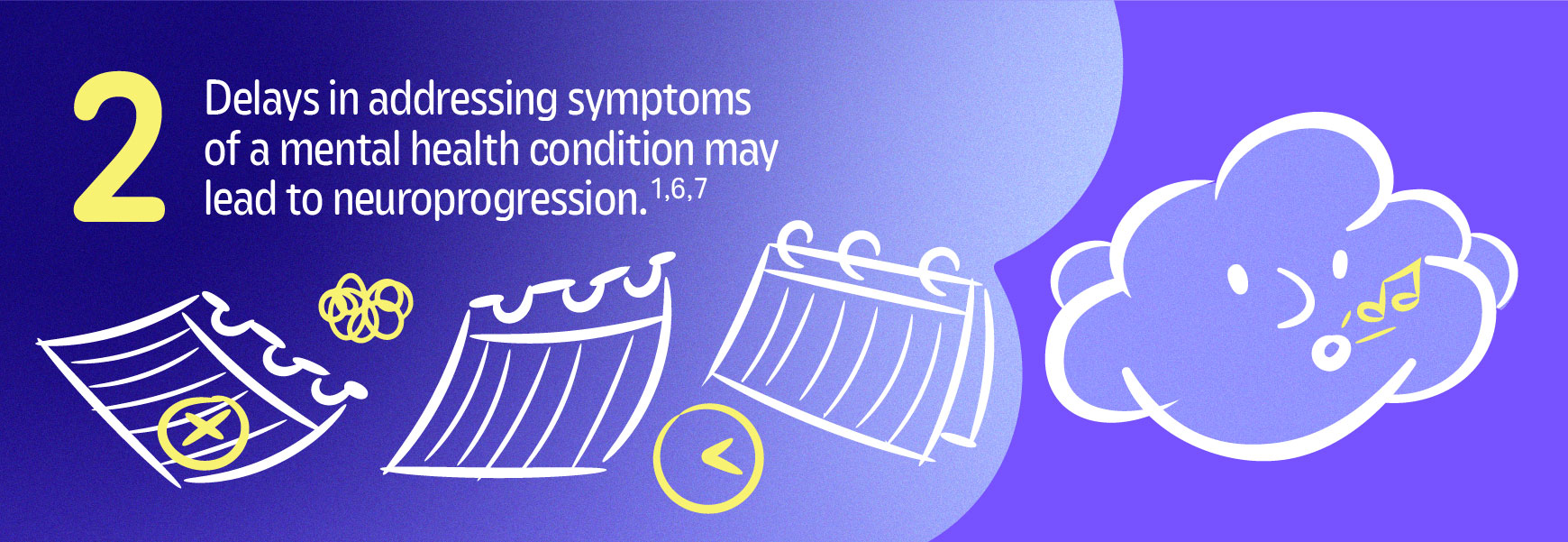
Understanding neuroprogression is essential for grasping the complexities of mental health disorders. This concept involves a series of biological processes that contribute to the gradual deterioration, relapse, and recurrence of such conditions. Various interconnected mechanisms, including physiological, neurochemical, immunological, and genetic factors, work in tandem to exacerbate these disorders. The resulting effects can manifest as both structural and functional changes in critical systems, particularly within the nervous, immune, and metabolic systems. Recognizing these mechanisms can help in formulating effective strategies for prevention and management of mental health issues.
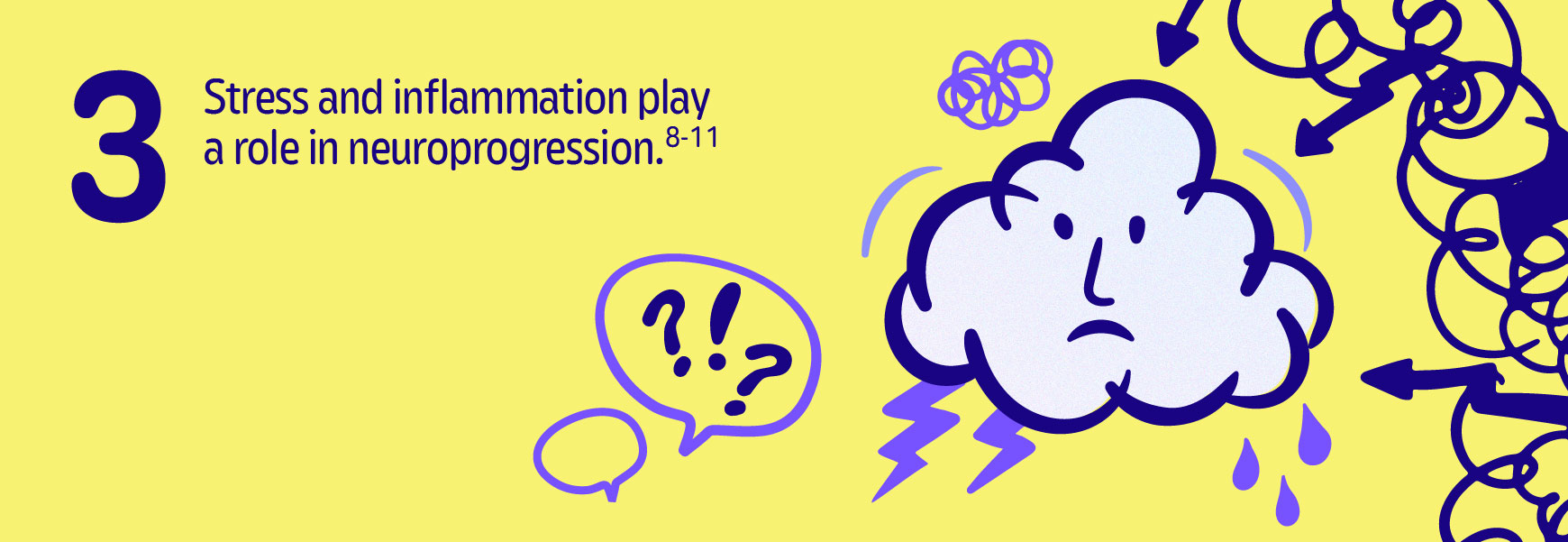
The interplay between stress and inflammation significantly impacts mental health outcomes. Chronic stress can worsen both physical and mental health, contributing to the exacerbation of pre-existing conditions. Moreover, mental health disorders are often linked with heightened physical and psychological stress, leading to systemic inflammation, including neuroinflammation. Prolonged states of inflammation can result in irreversible structural and chemical changes in the brain, linked to neuroprogression. Left unaddressed, these changes can culminate in deteriorating clinical outcomes and overall quality of life, making early intervention critical.
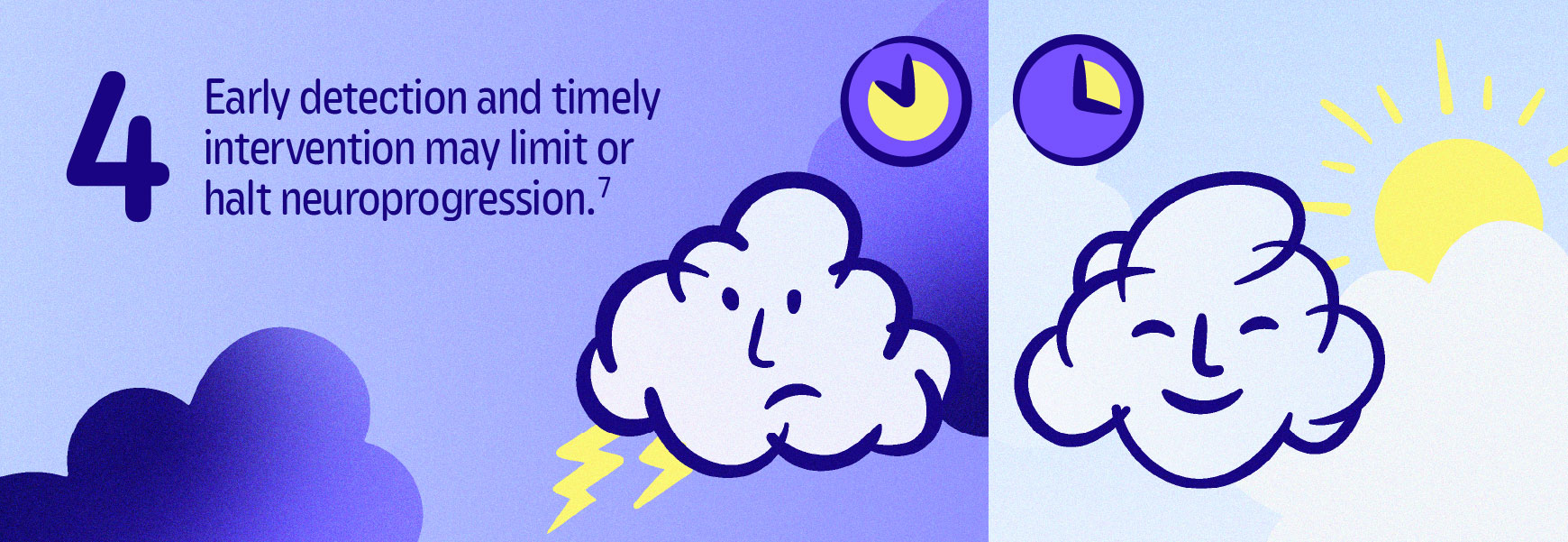
Prolonged episodes of mental health issues can accelerate the process of neuroprogression and lead to significant cognitive and physical decline. The earlier an individual identifies possible symptoms and seeks assistance, the more effective the intervention can be in slowing down this deterioration. Early intervention is correlated with improved outcomes for many mental health conditions, reducing both the disease burden and associated healthcare costs. Furthermore, timely help can enhance the quality of life not just for those affected but also for their families and communities, emphasizing the importance of prompt action.
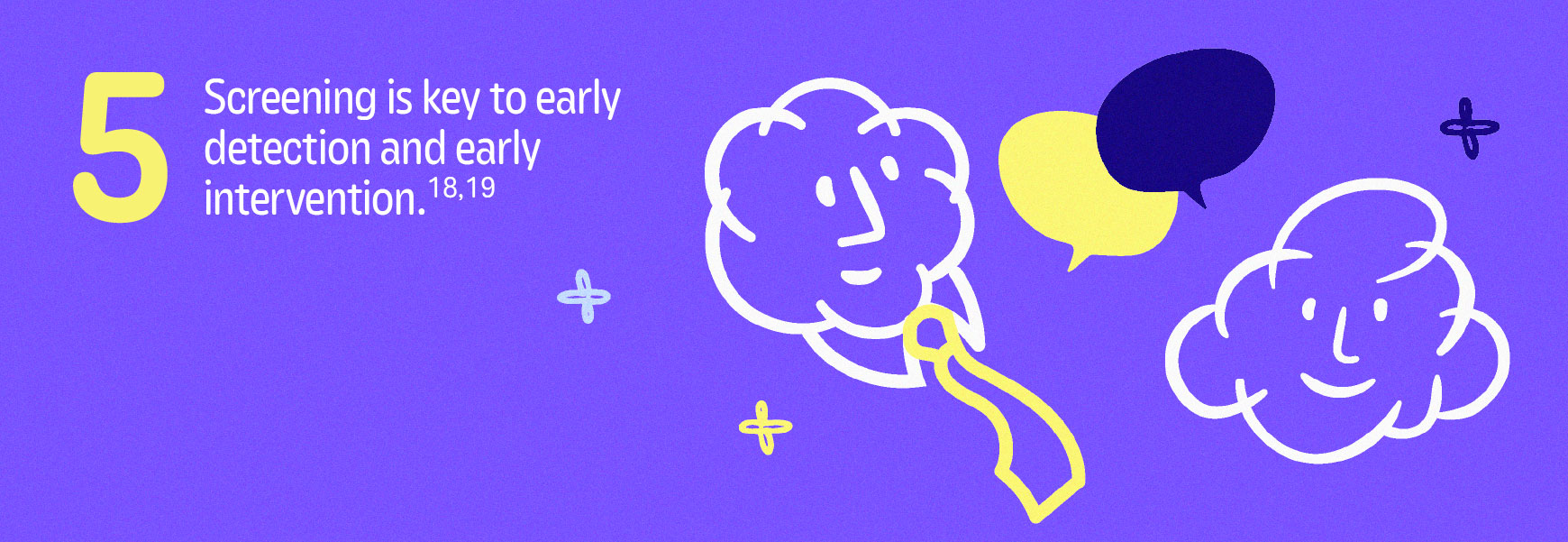
Mental health screening serves as a crucial tool for the early detection of symptoms associated with various mental health conditions. It is recommended that individuals begin screening at the age of 8, facilitating timely intervention and treatment. Both primary care physicians and mental health professionals are equipped to conduct these screenings. Additionally, there are numerous online resources offering free, confidential, and scientifically validated screening tools. By utilizing these tools, individuals can better understand their mental health status and determine whether they are exhibiting symptoms that warrant further attention and care.

Each individual’s journey through mental health treatment is unique, even when symptoms and diagnoses seem similar. Identifying the appropriate therapy can take time, and early engagement in treatment can maximize the benefits of therapy. It is essential to remember that without adequate treatment, the process of neuroprogression may remain unchecked, leading to a worsening of symptoms and complicating recovery efforts. Therefore, it is crucial to prioritize seeking help and exploring various therapeutic options to find what works best for each person.

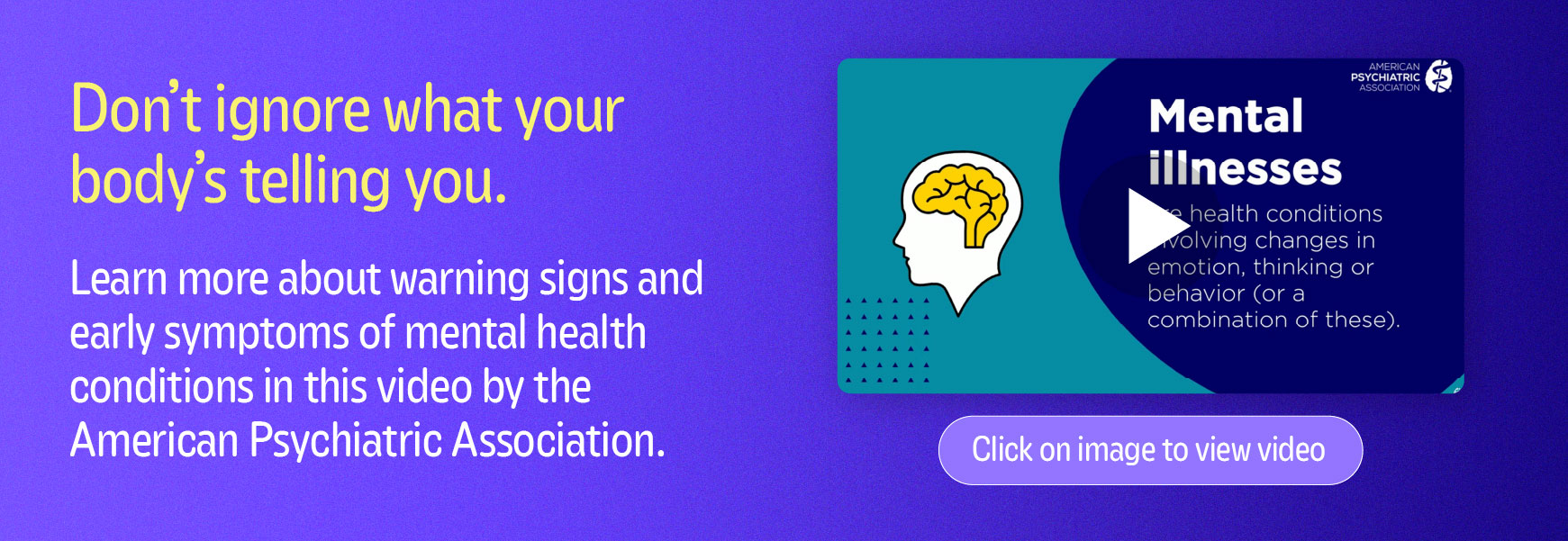




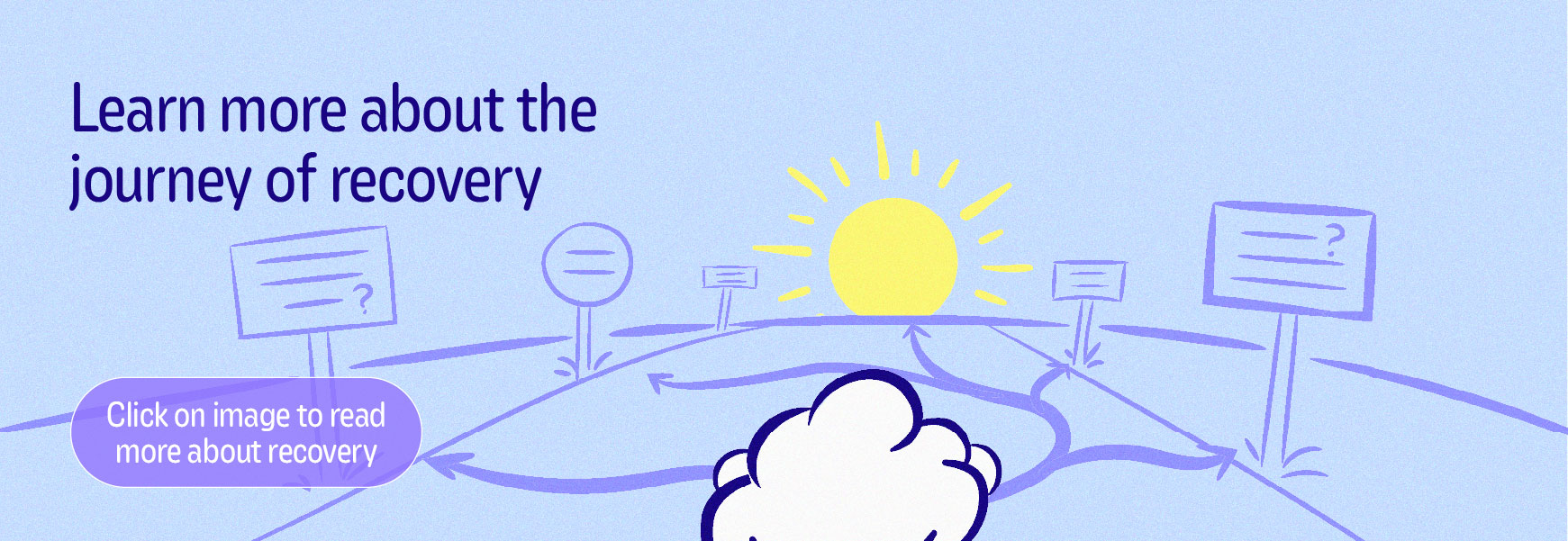
Shivani Kapadia, PharmD, is the medical director of global medical affairs, neuropsychiatry, at Otsuka Pharmaceutical Development & Commercialization, Inc (OPDC). She received her doctor of pharmacy degree from St. John’s University in Queens, New York.
Sara Asif Spencer, PharmD, MS, BCGP, is a medical science liaison, neuropsychiatry, at OPDC. She received her doctor of pharmacy degree from Albany College of Pharmacy in Albany, New York.
The views and opinions expressed in this blog solely belong to the author, and external content does not necessarily reflect the views of Mental Health America.
Essential References for Understanding Neuroprogression
- Berk M. Neuroprogression: pathways to progressive brain changes in bipolar disorder. Int J Neuropsychopharmacol. 2009;12(4):441-445. doi:10.1017/S1461145708009498
- Lieberman JA, Perkins D, Belger A, et al. The early stages of schizophrenia: speculations on pathogenesis, pathophysiology, and therapeutic approaches [published correction appears in Biol Psychiatry. 2002;51(4):346]. Biol Psychiatry. 2001;50(11):884-897. doi:10.1016/s0006-3223(01)01303-8
- Kanter JW, Busch AM, Weeks CE, Landes SJ. The nature of clinical depression: symptoms, syndromes, and behavior analysis. Behav Anal. 2008;31(1):1-21. doi:10.1007/BF03392158
- American Psychiatric Association. Warning signs of mental illness. Accessed July 15, 2024. https://www.psychiatry.org/patients-families/warning-signs-of-mental-illness
- Mental Health America. Is mental illness physical or mental? Accessed July 19, 2024. https://screening.mhanational.org/content/mental-illness-physical-or-mental/
- Halaris A, Leonard BE. Unraveling the complex interplay of immunometabolic systems that contribute to the neuroprogression of psychiatric disorders. Neurol Psychiatry Brain Res. 2019;32:111-121. doi:10.1016/j.npbr.2019.05.005
- Post RM, Fleming J, Kapczinski F. Neurobiological correlates of illness progression in the recurrent affective disorders. J Psychiatr Res. 2012;46(5):561-573. doi:10.1016/j.jpsychires.2012.02.004
- Fond G, Lançon C, Korchia T, Auquier P, Boyer L. The role of inflammation in the treatment of schizophrenia. Front Psychiatry. 2020;11:160. doi:10.3389/fpsyt.2020.00160
- Lee DH, Lee JY, Hong DY, et al. Neuroinflammation in post-traumatic stress disorder. Biomedicines. 2022;10(5):953. doi:10.3390/biomedicines10050953
- Hassamal S. Chronic stress, neuroinflammation, and depression: an overview of pathophysiological mechanisms and emerging anti-inflammatories. Front Psychiatry. 2023;14:1130989. doi:10.3389/fpsyt.2023.1130989
- Calcia MA, Bonsall DR, Bloomfield PS, Selvaraj S, Barichello T, Howes OD. Stress and neuroinflammation: a systematic review of the effects of stress on microglia and the implications for mental illness. Psychopharmacology (Berl). 2016;233(9)1637-1650. doi:/10.1007/s00213-016-4218-9
- Schneiderman N, Ironson G, Siegel SD. Stress and health: psychological, behavioral, and biological determinants. Annu Rev Clin Psychol. 2005;1:607-628. doi:10.1146/annurev.clinpsy.1.102803.144141
- Davis MT, Holmes SE, Pietrzak RH, Esterlis I. Neurobiology of chronic stress-related psychiatric disorders: evidence from molecular imaging studies. Chronic Stress (Thousand Oaks). 2017;1:2470547017710916. doi:10.1177/2470547017710916
- Wertz J, Caspi A, Ambler A, et al. Association of history of psychopathology with accelerated aging at midlife [published correction appears in JAMA Psychiatry. 2021;78(5):569. doi:10.1001/jamapsychiatry.2021.0268]. JAMA Psychiatry. 2021;78(5):530-539. doi:10.1001/jamapsychiatry.2020.4626
- Ruiz NAL, Del Ángel DS, Olguín HJ, Silva ML. Neuroprogression: the hidden mechanism of depression. Neuropsychiatr Dis Treat. 2018;14:2837-2845. doi:10.2147/NDT.S177973
- Correll CU, Galling B, Pawar A, et al. Comparison of early intervention services vs treatment as usual for early-phase psychosis: a systematic review, meta-analysis, and meta-regression. JAMA Psychiatry. 2018;75(6):555-565. doi:10.1001/jamapsychiatry.2018.0623
- Singh V, Kumar A, Gupta S. Mental health prevention and promotion—a narrative review. Front Psychiatry. 2022;13:898009. doi:10.3389/fpsyt.2022.898009
- American Academy of Family Physicians. Mental and behavioral health care services by family physicians (position paper). Accessed July 17, 2024. https://www.aafp.org/about/policies/all/mental-health-services.html
- Mental Health America. About MHA Screening. Accessed July 17, 2024. https://mhanational.org/cri/screening
- US Preventive Services Task Force. Screening for anxiety in children and adolescents: US Preventive Services Task Force recommendation statement. JAMA. 2022;328(14):1438-1444. doi:10.1001/jama.2022.16936
- US Preventive Services Task Force. Screening for depression and suicide risk in children and adolescents: US Preventive Services Task Force recommendation statement. JAMA. 2022;328(15):1534-1542. doi:10.1001/jama.2022.16946
- US Preventive Services Task Force. Screening for anxiety disorders in adults: US Preventive Services Task Force recommendation statement. JAMA. 2023;329(24):2163-2170. doi:10.1001/jama.2023.9301
- US Preventive Services Task Force. Screening for depression and suicide risk in adults: US Preventive Services Task Force recommendation statement. JAMA. 2023;329(23):2057-2067. doi:10.1001/jama.2023.9297
- Mental Health America. Mental health treatments. Accessed July 17, 2024. https://mhanational.org/mental-health-treatments
- Mental Health America. Finding the right clinical mental health care for you. Accessed July 17, 2024. https://www.mhanational.org/finding-right-mental-health-care-you
















